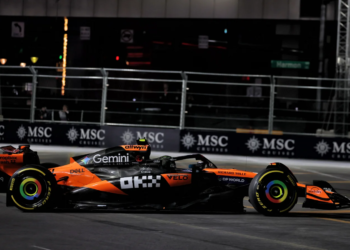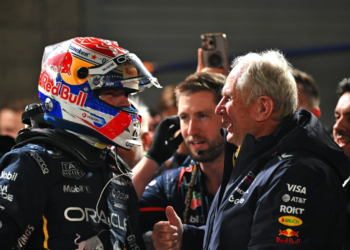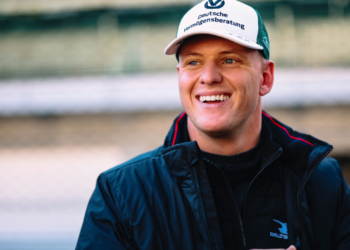Mercedes boss Toto Wolff has praised the role Michael Schumacher played in Mercedes’ eventual success in Formula 1, on the occasion of the seven-time World Champion’s 50th birthday.
Schumacher competed in sportscars with Mercedes before moving into Formula 1 in 1991, and linked up with the manufacturer for their respective returns to the championship in 2010.
Schumacher took one podium finish with Mercedes during his three-year spell with the team, during which it competed mainly in the midfield, before he retired for a second time at the end of 2012.
Mercedes went on to emerge as Formula 1’s benchmark through the hybrid era and enters 2019 having won the last five Drivers’ and Constructors’ titles.
Schumacher has not been seen in public since sustaining serious head injuries in a skiing accident in December 2013, with updates on his status kept to a minimum.
On Wednesday his family assured fans that Schumacher “is in the very best of hands and that we are doing everything humanly possible to help him."
On Thursday Schumacher’s contribution to Mercedes’ subsequent success was hailed by Wolff.
“Michael is one of the founding fathers of the success we have had in the last five years," said Wolff, who joined Mercedes in early 2013, shortly after Schumacher’s departure.
"There is no other driver like him and his vast experience contributed tremendously in the development of our team.
“He played a crucial role when we re-joined F1 and was one of the people who laid the foundation for our future success.
“We're extremely grateful for everything he did for us. Today, we all tip our hats to you – happy birthday, Michael!"
Wolff added: “Michael has had a tremendous impact on Formula 1.
"Not only did he set an incredible record – a record that is yet to be beaten – but he also shaped and changed the sport forever.
“As a driver, Michael took Formula 1 to a whole new level with his attention to detail and his technical knowledge.
“He did everything with great determination, from his engineering debriefs to his physical training, and was always searching for new ways to improve his on-track performance.”







Discussion about this post